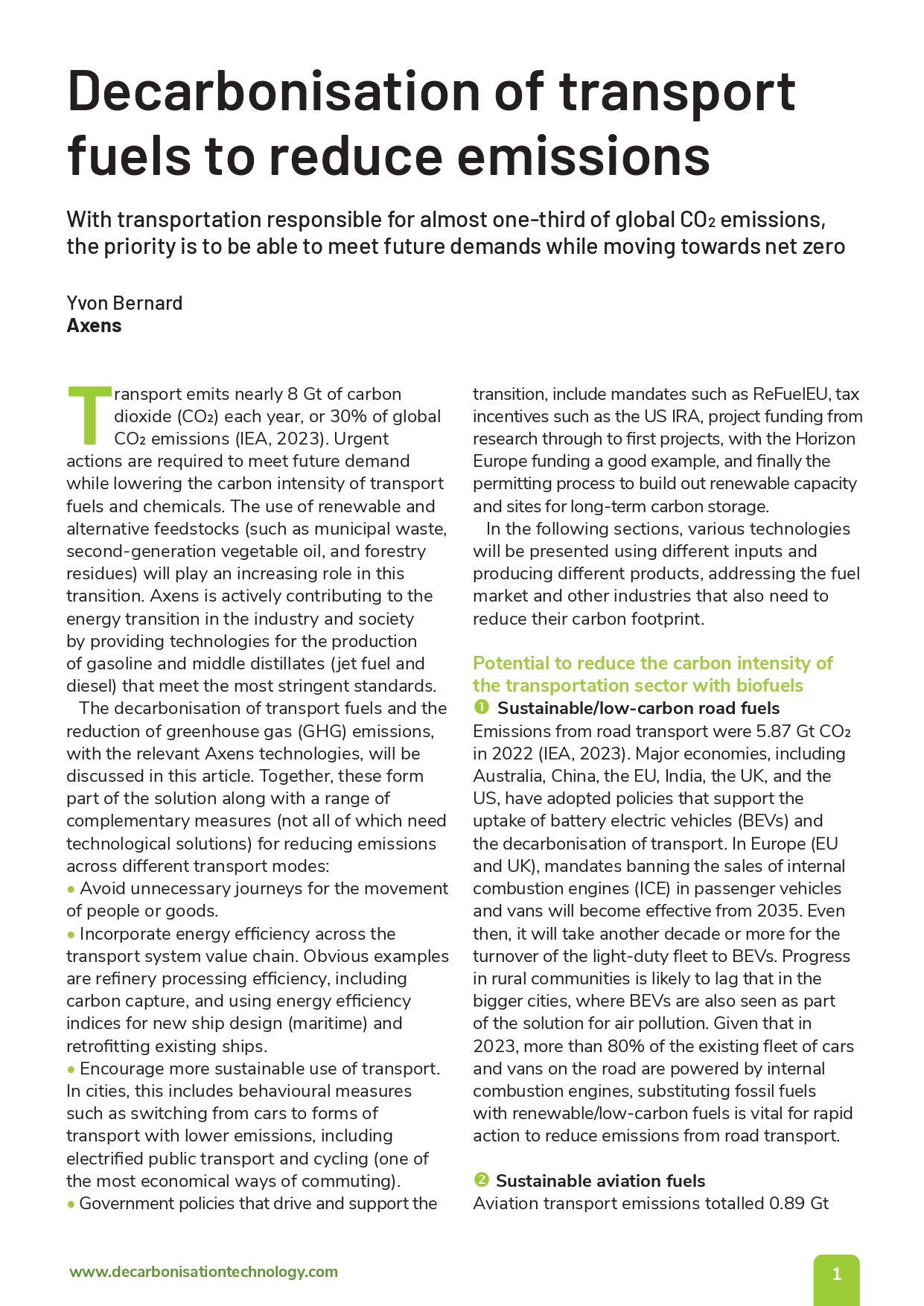
Originally published in Decarbonisation Technology, November 2023
Transport emits nearly 8 Gt of carbon dioxide (CO₂) each year, or 30% of global CO₂ emissions (IEA, 2023). Urgent actions are required to meet future demand while lowering the carbon intensity of transport fuels and chemicals. The use of renewable and alternative feedstocks (such as municipal waste, second-generation vegetable oil, and forestry residues) will play an increasing role in this transition.
Axens is actively contributing to the energy transition in the industry and society by providing technologies for the production of gasoline and middle distillates (jet fuel and diesel) that meet the most stringent standards.